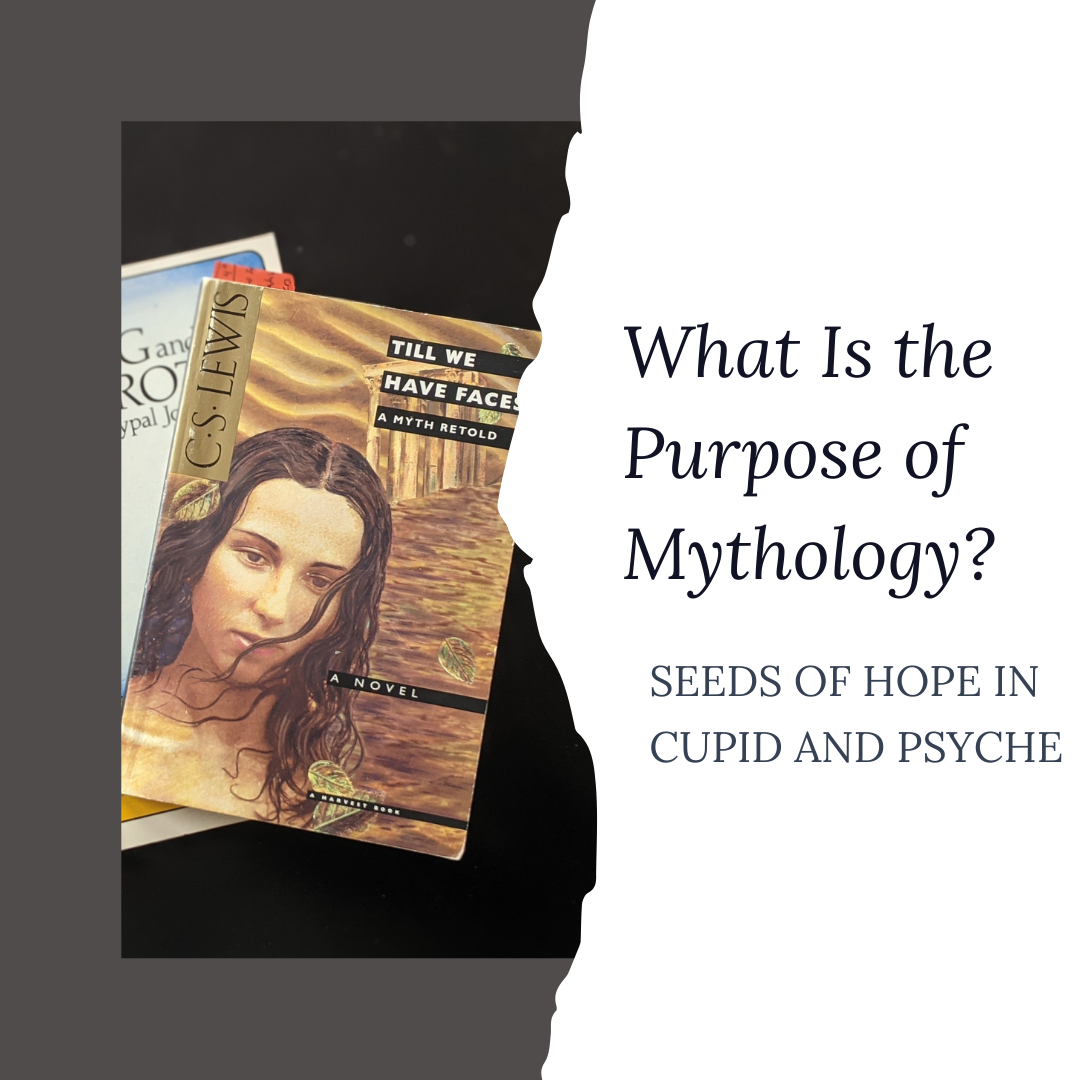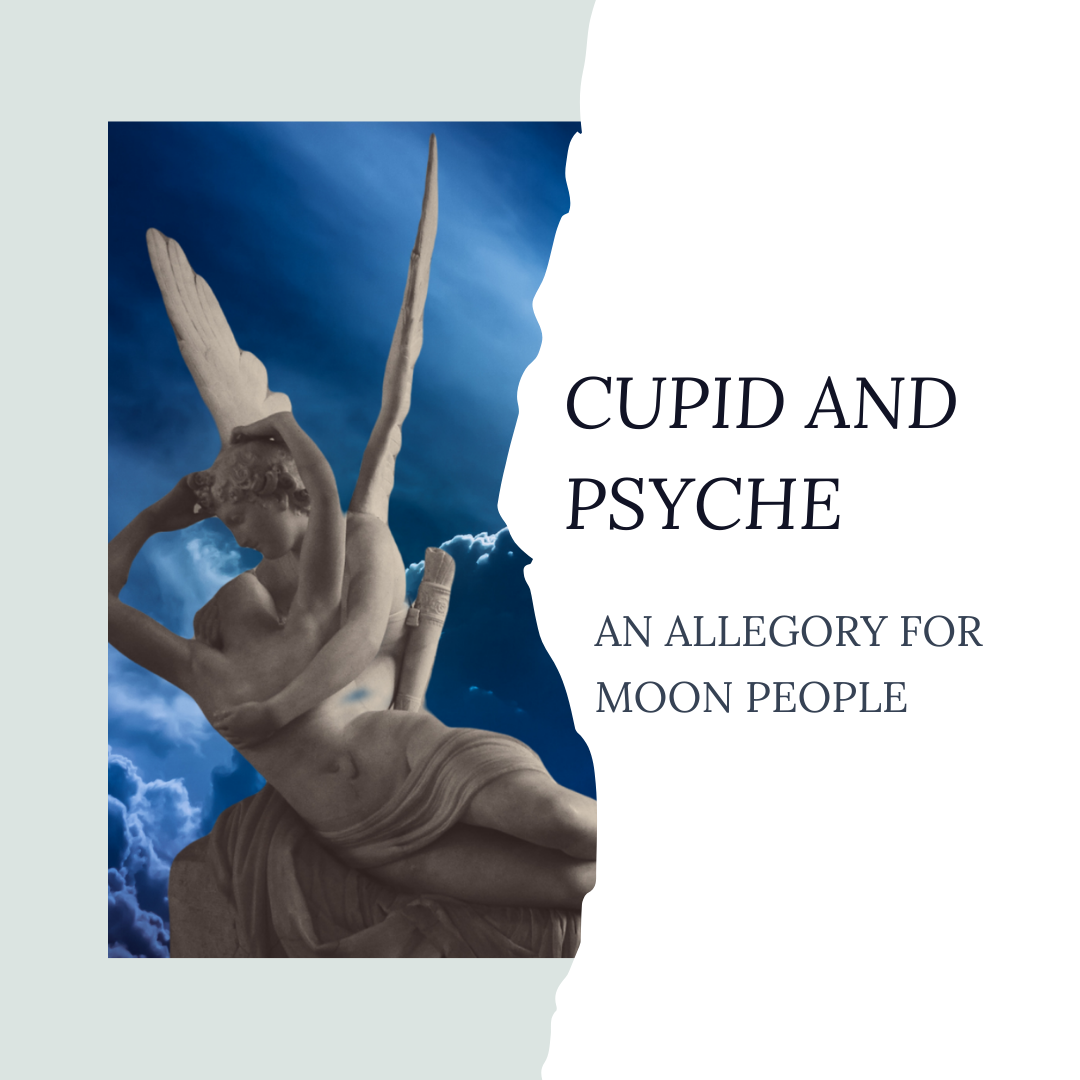What is the Purpose of Mythology?: Seeds of Hope in Cupid and Psyche
When I was a teenager, the myth of Cupid and Psyche captured my imagination. It is the story of a girl who is sacrificed by her people and is swept into a life with a secret lover and unknowingly falls in love with a god.
The story as we know it comes from an ancient Roman novel The Metamorphoses by Apuleius, but I knew it from C.S. Lewis’s retelling in his novel, Till We Have Faces.
In Lewis’s novel the story is told from the perspective of Psyche's older sister, Orual. Unlike the sisters of the myth, Orual loves Psyche and does her best to help Psyche live a happy life—even though Psyche is celebrated for her beauty, and Orual is criticized for being ugly.
As a teenager, I identified a lot with Orual. I was a curvy brunette in a time and place that celebrated boyish blondes. Like Orual, I was told that, I'd I was ever going to be loved, it would be for my intelligence and strength, not for my beauty.
In the end of Till We Have Faces, Orual is told to stand in front of a mirror with Psyche, and she is told that she, also, is Psyche.
Those words captured my heart. Even now, typing them makes me cry.
That story planted a seed of longing and hope in my heart that someday I would find a home with people who loved me the way Orual loved Psyche, people who saw me as beautiful. I didn't go out and demand to be seen as beautiful. Like Orual, I put down the book and built a life for myself that celebrated my strength and intelligence and hid my face as much as possible.
But quietly, so quietly I didn't even know what I was doing, I nurtured that hope. I made subtle decisions that steered my life toward the dream of being able to look in the mirror and see myself as Psyche.
Myth is a Guide to Shadow Work
I've been thinking a lot lately about the purpose of myth, and I think it's meant to take us on journeys like this. A myth plants a seed of desire that grows quietly in the unconscious, urging us to make it real. It does this by introducing us to characters that we relate to and putting them in scenarios that give us instructions for how to manifest the things we desire in our lives for ourselves.
In the process, myth has the power to lead us through deep psychological work.
Now that I am older, I recognize the work that I was doing with “Cupid and Psyche” as shadow work.
Not all aspects of the shadow are horrible. Some of them are wonderful. Being beautiful was part of my shadow. It is a thing that I was entitled to identify with that I refused to identify with because society says I wasn’t allowed. Things that are rightfully yours that have been stolen from you from society are, definitionally, part of the shadow.
And the story of Cupid and Psyche helped me to reclaim it.
One Myth, Many Stories
One of the wonderful things about myths is that they don't have to mean the same thing to everyone.
Recently, I wrote about the myth of Cupid and Psyche as a guide for lunar people who feel excluded by a solar society that I insists that the right way to be in the world is methodical and goal-oriented. This way of reading the story is supported by the story itself, but it is very different from the reading I did when I was a teenager.
Interestingly, it is, also, shadow work.
In this case, the shadow is carried by Psyche. She is the lunar person who follows her intuition and is helped in her journey by forming relationships with others who support her, instead of being the lone hero who does everything for herself and follows a rational, skeptical path through life the way society says we should.
It is tempting to identify with only one character in a myth. Books like Goddesses in Everywoman by Jean Shinoda Bolen talk about Hestia women and Athena women, quietly encouraging you to identify with only one or two goddesses.
The truth is that identity is complex.
I am Orual. I am Psyche of the moon. To choose is just to create another shadow.
If you’d like to learn more about the astrology of Cupid and Psyche, check out my lecture.




